Corsica and the language. Corsica is not just steep cliffs, white beaches and turquoise waters. Corsica is also an island with its own language, a dramatic history and a mafia that is one of the most violent in Europe ...
Table of contents
Corsica and the language
The Corsican language is spoken in Corsica and northern Sardinia and is closely related to Italian, so closely that some linguists claim it is an Italian dialect. According to an article on the site Language use almost all Corsicans are bilingual (Corsican and French), but only one tenth of them are native speakers and the language is considered endangered.
Given that English is becoming the third language of Corsicans, it's perhaps not surprising that English often falters. Nevertheless, getting around as a tourist is no problem. Those who don't speak English try to help anyway, and if necessary, the person we're talking to usually waves to someone nearby who knows some "anglais".
Corsica and independence
Like many other islands in the Mediterranean, Corsica has been subject to conquest throughout history. These include Carthage, the Roman Empire, the Vandals, the Ostrogoths and the Byzantine Empire. For most of the period between the 12th and 18th centuries, the island belonged to Genoa, although it was briefly under French or British control.
In 1729, the Corsicans revolted against Genoa, but the rebellion was put down with the help of France. Corsica's only period of independence lasted from 1755 to 1769. Soon after, the island was sold by Genoa to France ... An important figure in Corsica's history is Pasquale Paoli (1725-1807), a Corsican general who fought for independence, first against Genoa and then against France.
20th century
Several separatist movements have been active in Corsica since the mid-1970s. The militancy of the 1980s, when houses owned by the French and other foreigners were burned down (including Tage Danielsson's house!) has calmed down, but there is a strong sense of identity and language.
Today, Corsica has the status of a separate territorial administration and in 2001 it became possible to teach Corsican in schools, but Corsica is still not a fully autonomous region. The Corsican flag, with the head of a defeated Moorish leader, flies proudly everywhere.
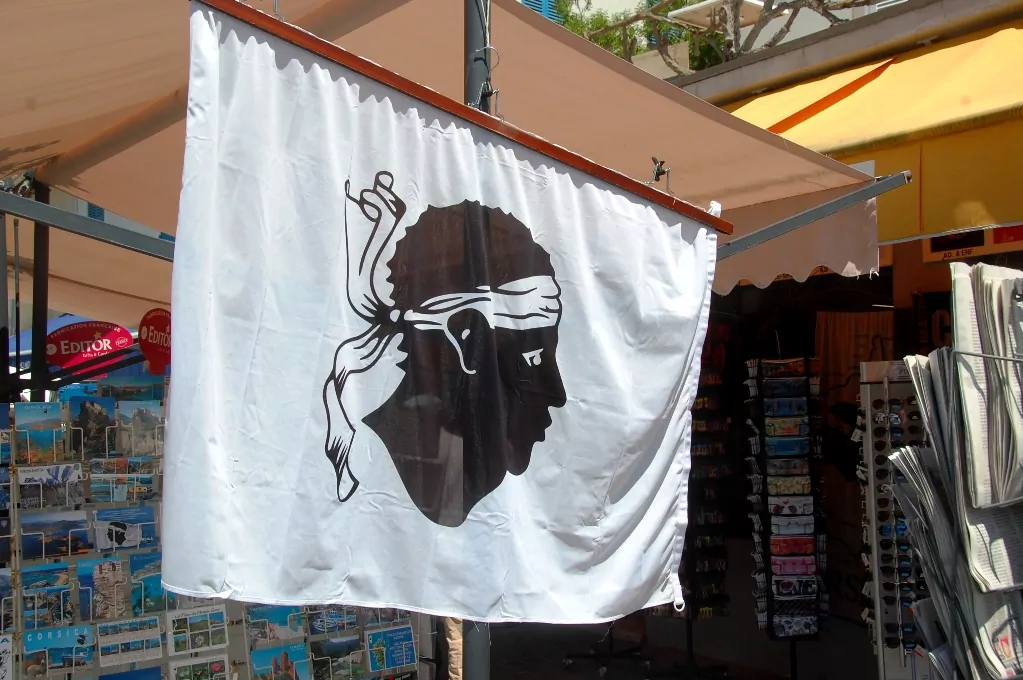
The Corsican Mafia
The Corsican mafia is not as well known as the Sicilian one, but it seems to be all the more violent. Perhaps this is because it is less well organised and more likely to be made up of several different rival gangs. According to Wikipedia, there have been over 100 murders on the small island since 2007.
The population of Corsica represents 0.5 per cent of France's population, but apparently a significant proportion of France's murders take place here! The problem has, of course, been widely discussed in France and the island has been equipped with considerable numbers of police, prosecutors and detectives to tackle the problem.
Corsica and tourism
According to Wikipedia, the Corsican Mafia engages in various "businesses" such as money laundering, extortion, drug trafficking, arms trafficking, prostitution, robbery, corporate crime, tax evasion, contract killings, casinos and political corruption. They operate not only from Corsica, but also from Africa, Russia and South America.
However, visiting Corsica as a tourist feels harmless and tourism is the main industry on the island, so tourists are welcome. Whether it is in English, or in French combined with sign language, we have been very well received everywhere!
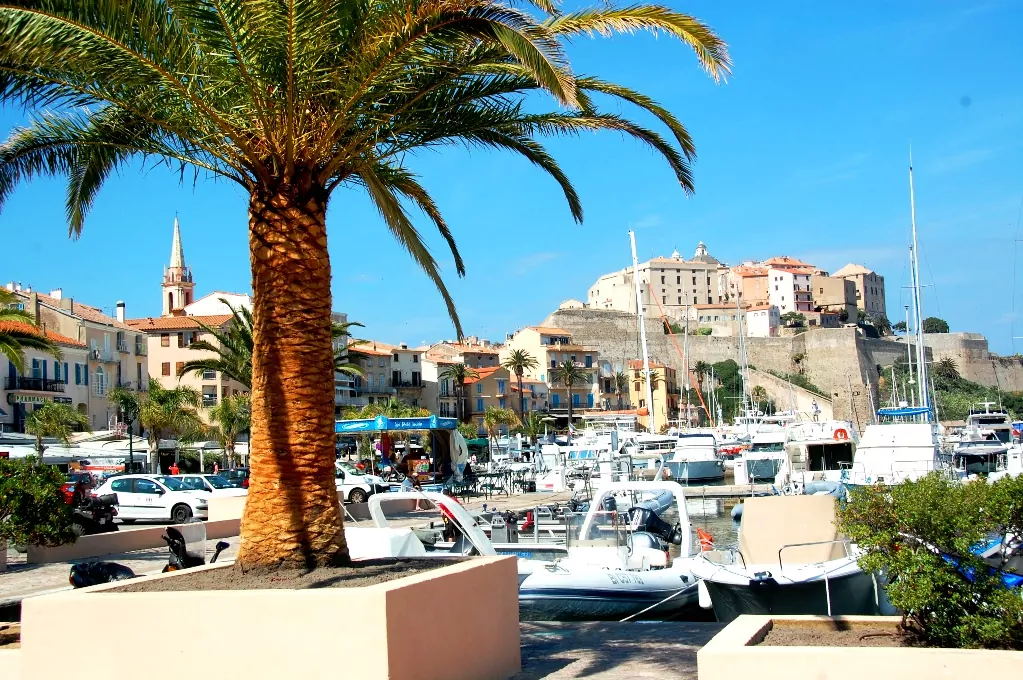
Sainte-Mere-Eglise in Normandy
The Normandy coastline is littered with memorials from D-Day, the Normandy landings on 1 January....
Camaret-sur-mer in France - a gem in Brittany
Camaret-Sur-Mer in France is a stunningly beautiful place on earth. In this picturesque fishing village in Brittany,...
Ile de Ré in France - holiday island on the west coast
Ile de Ré in France is an island located off La Rochelle, on the west coast of France....
The Abbey of Mont-Saint-Michel in France
Located on the border between Normandy and Brittany, the Abbey of Mont-Saint-Michel in France is a UNESCO World Heritage Site.
Concarneau in France - South Brittany
Welcome to Concarneau in France, in southern Brittany. In the heart of Concarneau you will find Ville Close,...
Palavas les Flots in France - among canals and boats
Palavas Les Flots is located on a small spit of land outside Montpellier, France. This is a...
Porquerolles Island in France - Golden Islands on the French Riviera
The island of Porquerolles in France is one of the golden islands on the French Riviera, in the south of France. Many consider...
Camargue in France - land of the white horses
On the way to Arles we drove past the beautiful Camargue. The area consists of 140,000 hectares...
Honfleur in France - medieval town in Normandy
Honfleur in France is not far from Le Havre in Normandy, and the route to it was along the...
Aunt Anna in French trouble on the Opal Coast
Guest writer: Anna Nilsson Spets Although I live a stone's throw from the French border, France is...
Amphitheatre in France - Arles in Provence
In Arles, Provence, you can find the ruins of a Roman theatre. This impressive amphitheatre in France...
Delicious oysters in Cancale, Brittany, France
There is something special about experiencing oysters in France. In Brittany, France, there is Cancale, which...
Gothenburg - France - the start of the European journey
Now we have driven from Gothenburg to France. Night-black motorways through Denmark, windy sea between Rödby...
Gorges du Verdon - Europe's Grand Canyon
The Gorges du Verdon in France are sometimes called the Grand Canyon of Europe, and it's not hard to...
Facts about France - 30 things you (might) not have known
Writer: Peter Bergström Here are the facts about France - 30 things you (maybe) didn't know. We...
Île Sainte-Marguerite near Cannes - Lerin Islands in France
One of the reasons why we went back to Cannes and the French Riviera, was that we...
Carcassonne in France - a fortified medieval city
Carcassonne in France is a fortified medieval city in the Languedoc-Roussillon region. When you step into the...
The Silver Coast in France - from Gironde to Bayonne
We are on the Silver Coast in France. The entire west coast of France from the Gironde estuary to Bayonne...
Aunt Anna on a housewife holiday in Paris
Guest writer: Anna Nilsson Spets Do you remember the word 'housewife holiday'? A housewife's holiday was a way for overworked women to...
Moustiers-Sainte-Marie in France
Located on the Gorges du Verdon, Moustiers-Sainte-Marie is considered one of the most beautiful villages in France....
Île du Levant in France - Europe's only naturist island
The Île du Levant in France is Europe's only naturist island, and a very special place. Here...
Camping L'Aigle at Aiguines in France
Two days ago, we arrived in the village of Aiguines in France on the lake Lac de Sainte Croix,...
Camping and swimming at Le Lavandou - Côte d'Azur in France
After a nice visit to blog friends in Provence, it was time for us to head south....
Veulettes-sur-Mer in Normandy - seaside caravan site
Now we have found a pitch in Veulettes-sur-Mer on the Normandy coast. The cliffs are dramatic...
Ardeche in France - and the Pont d'Arc
In the Ardeche region of France, you'll find an unrivalled natural environment with a dramatic canyon, a...
A day in Nice and Villefranche in France
A day in Nice and Villefranche, France. From wide beach walks to the alleyways of the old town,...
Camping in Cannes - Camping Le ranch
Camping Le Ranch is a campsite in Cannes that is ideal for visiting the city centre.
The Normandy landings in France
It's one thing to read about the Normandy landings in France, and another to read about the...
Travelling through Brittany in France
Travelling through Brittany is a journey through medieval France. Small villages pop up every...
St Tropez in France - the city of luxury and glamour?
St Tropez in France is known for luxury and glamour. This is one of the more...
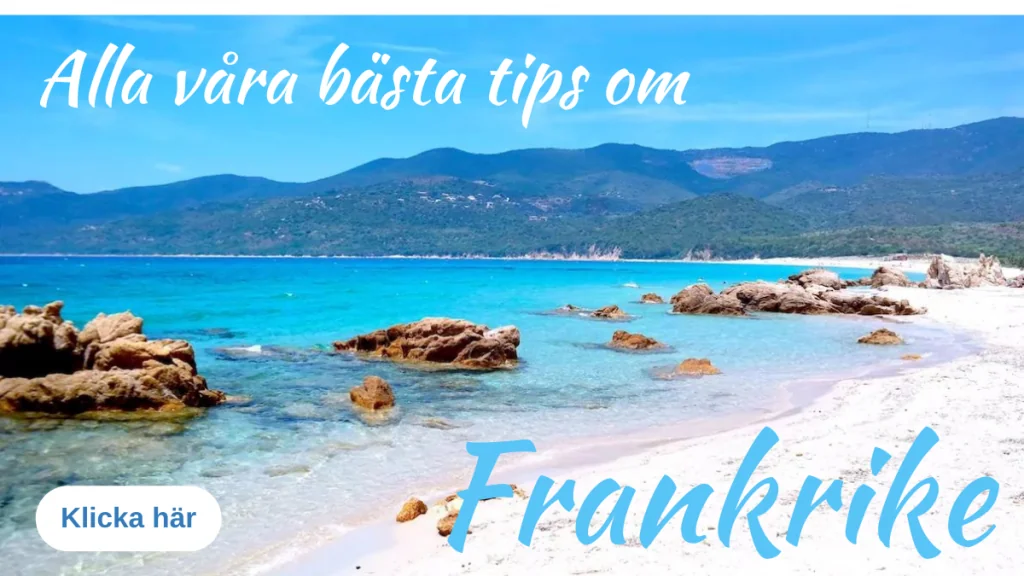


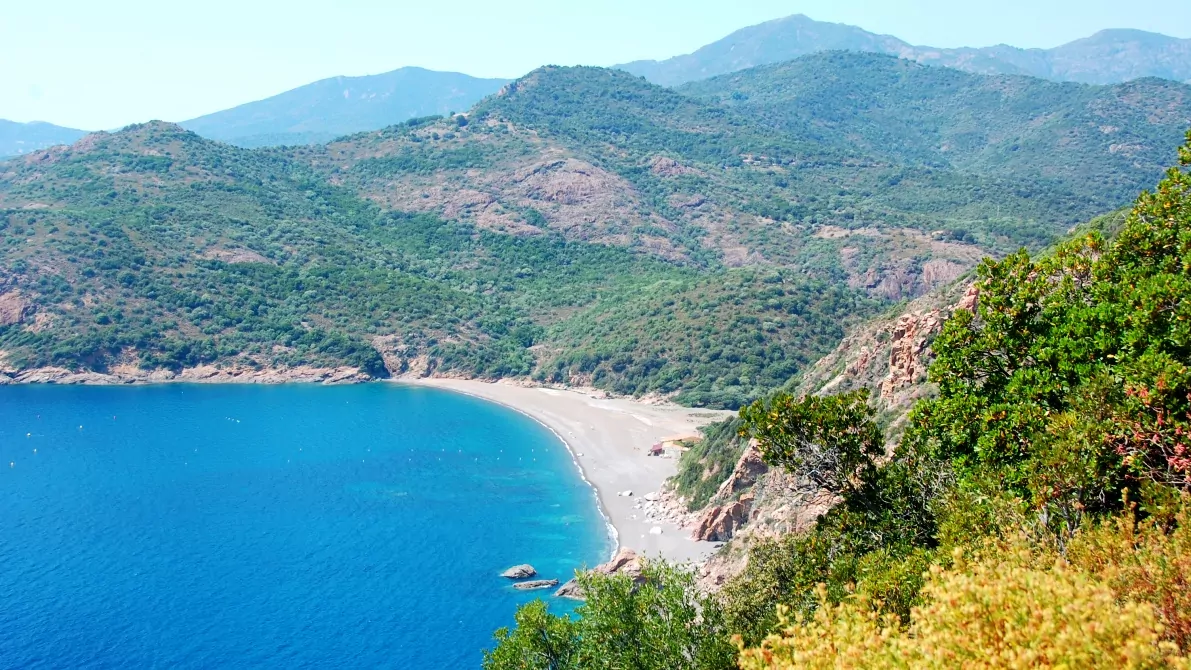






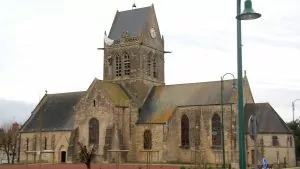
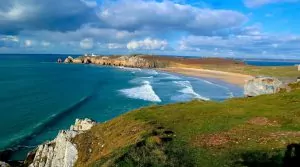
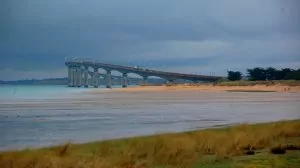
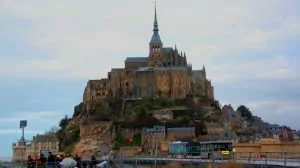
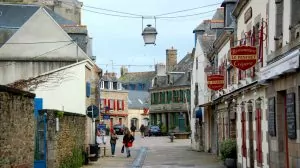
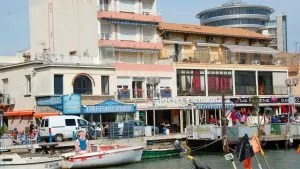
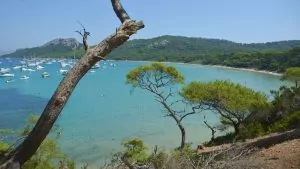
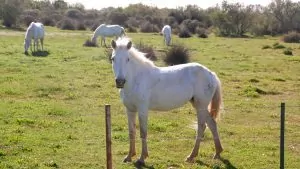
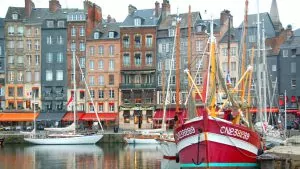
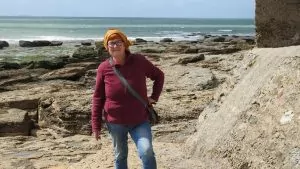
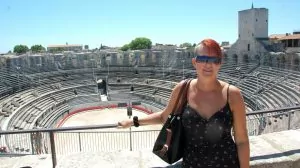
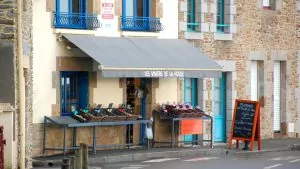
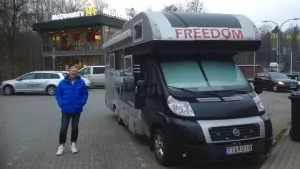
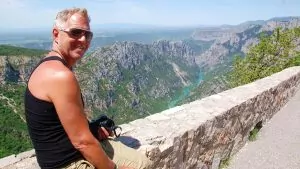
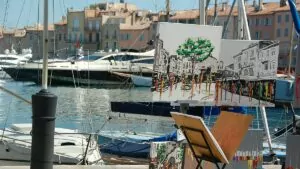
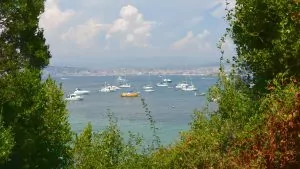
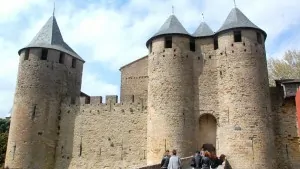
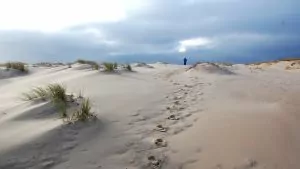
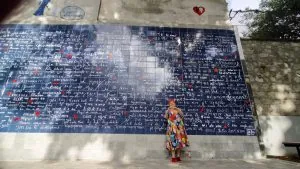
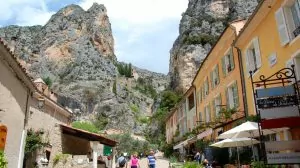
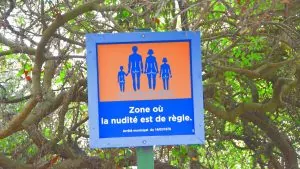
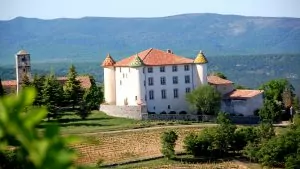
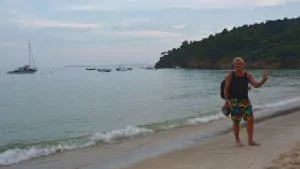
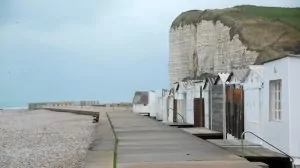
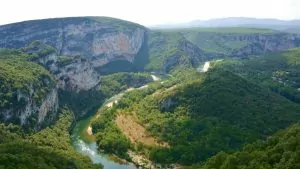
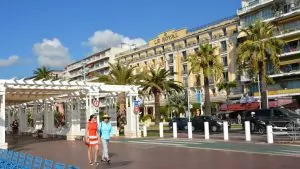
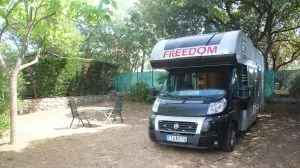
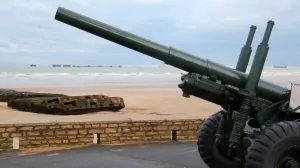
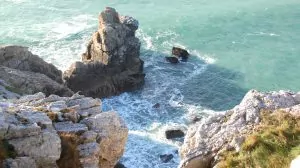
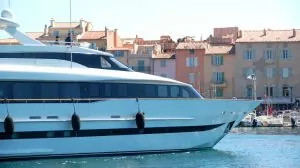
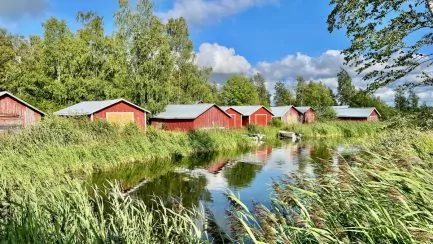
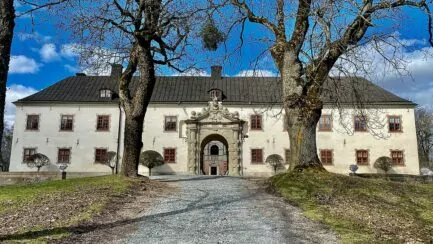
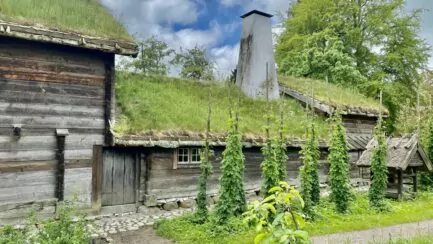
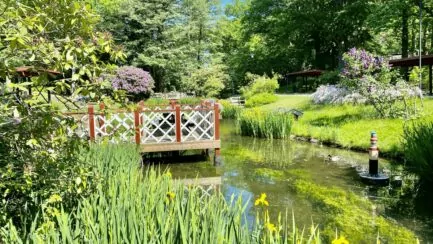



BP says:
Thank you for a very good and well-written interesting post. I did not know about the mafia and the incredibly high number of murders. One should assume that all murderers are caught considering that Corsica is an island and it is not so easy to get away from there. The small airport and the ferry camps should be easy to guard, I think ...
02 June 2015 - 20:28
Åsa says:
But hey, that flag wasn't entirely PC, was it?!
02 June 2015 - 21:18
Henry says:
And why not? History is history. Long live Pippi's old dad. The Negro King. PC enough for you? ?
25 July 2017 - 9:46
admin says:
BP, I hadn't realised this before either! Apparently it is customary to keep quiet, and therefore it has been difficult to find the culprits sometimes... Otherwise I can agree - the island is geographically limited!
Åsa, I also find it hard to imagine that flag in Sweden...! 😉
02 June 2015 - 21:31
Mr Steve says:
Thank you for the interesting information. If you don't know what the flag stands for, I could just as easily believe that it belongs to some violent guerrilla movement or a criminal youth gang. However, the Corsicans may feel that they are excluded from society and have a similar struggle against the authorities, which is reflected in the flag's primitive design.
With my professional background, I am naturally interested in whether there is a prison on the island.
03 June 2015 - 8:35
Ama de casa says:
When we were in Corsica we were stopped by a police officer, saw a car with bullet holes in the window and a couple walking around with rifles. But it did not feel at all unsafe anyway.
03 June 2015 - 10:53
Ditte says:
Thank you for a little historical rehearsal, needed to be refreshed with me. I recognised the flag, it is a bit unusual undeniably.
I know the mafia has been a problem, but as you say, I don't think you need to worry as a tourist or visitor. I have also never noticed anything but friendliness and helpfulness (same in Sicily).
Good that Corsican is now being taught in schools so that the language can survive.
I also remember that English went well if French failed.
And I understand that you enjoy it!
03 June 2015 - 12:00
Lena in Wales says:
Very interesting historical post about an island I discovered I don't really know much about. Many thanks!
I have also been on an adventure!
Take care!
03 June 2015 - 13:50
admin says:
Steve, I think you have to be a bit outnumbered to have such a flag. Seems impossible for a large powerful state to have one... Now we are curious if there is a prison... will return! 😉
Ama de casa, we'll see what we'll have to deal with... the violence is mostly about the people involved, I think... We haven't felt the least bit unsafe either!
Ditte, I only know a few words and phrases in French when the going gets tough, but most of the time English works, albeit poorly and somewhat tentatively. In any case, everyone is helpful and nice!
Lena in Wales, then I will soon check in with you to see what kind of adventure it is! 🙂
03 June 2015 - 16:19
JoY says:
Interesting reading and considering we have a Carthago, we should go there hihihi.
Hugs
03 June 2015 - 17:20
Ruth in Virginia says:
The Corsicans have always been somewhat revolutionary, as have the Basques in northern Spain,
with their own languages against the national language.
On our way from Bonifacio in the south to Ajaccio, we stopped in a village in the mountains to buy cheese and fruit for lunch. I started with my very limited school French, when the woman at the counter said: "You don´t have to speak French. I'm from England." She had travelled to Corsica and "met her destiny".
Nice to read your report.
By the way - Napoleon Bonaparte was born in Ajaccio in 1769. The house is
now a museum.
03 June 2015 - 18:31
admin says:
JoY, haha that's how you can see it! Regardless, we highly recommend a visit here in Corsica! 🙂
Ruth in Virginia, we will see if we can get to Ajaccio! Maybe an interesting museum to see too!
04 June 2015 - 8:09